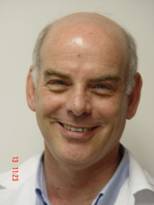Prof. Jacob Lavee's New Organ Donor Prioritization Plan Adopted into Law, and Draws International Attention

Prof. Jacob Lavee of Sheba, initiator of the new organ donor plan
Getting more people to become organ donors would save lives, but driving up the number of donors is tough. Thanks to Prof. Jacob Lavee, head of Sheba's Heart Transplantation Unit, Israel is about to try a new tack. As of 2011, Israelis who volunteer to donate their organs when they die will be higher on the waiting list if they ever need a transplant.
Lavee's concept adds self interest to the organ-donation equation - giving donor card-carriers a legal right to priority treatment if they should require an organ transplant -- without raising some of the tough ethical questions that come up when the discussion turns to paying people to be donors.
The new Israeli organ allocation initiative, which launches next month with a broad-scale government-backed advertising campaign, has been previously suggested but never before implemented anywhere in the world. As such, the Israeli initiative is gaining international attention. The prestigious medical journal The Lancet featured the policy initiative in its lead pages this month, followed by an article in The Wall Street Journal, interviews on the BBC, and more.
In order to get priority, you have to volunteer to be an organ donor a few years before you need an organ yourself (this prevents people from signing up at the last minute purely out of urgent self interest). If you need a transplant and a close family member donated their organs after they died, you'll also get bumped up the waiting list. Certain patients who have an urgent need for a transplant will still be given priority over patients who have agreed to be organ donors, but whose medical need is less urgent.
Writing in The Lancet , Prof. Lavee described Israel's current organ donation statistics as "grim". Only one in 10 adults in Israel carries a donor card. Lavee says that the new policy "provides an incentive for individuals to agree to help each other". He acknowledges that it violates the principle of "true altruism", and the "ideal" of care being provided solely according to medical need. "However, this is a price worth paying. If this policy results in the procurement of more organs for transplantation, then it promotes a different but nonetheless important goal of medicine -- achievement of maximum health," says Lavee.








